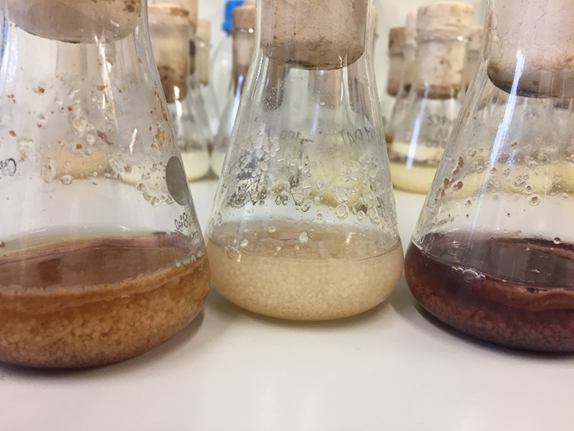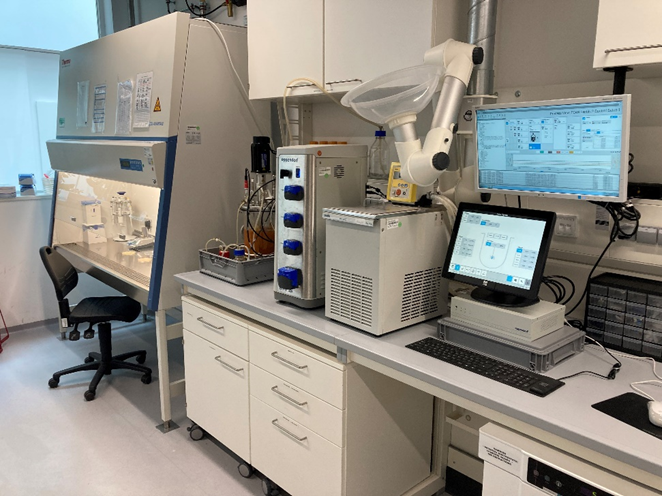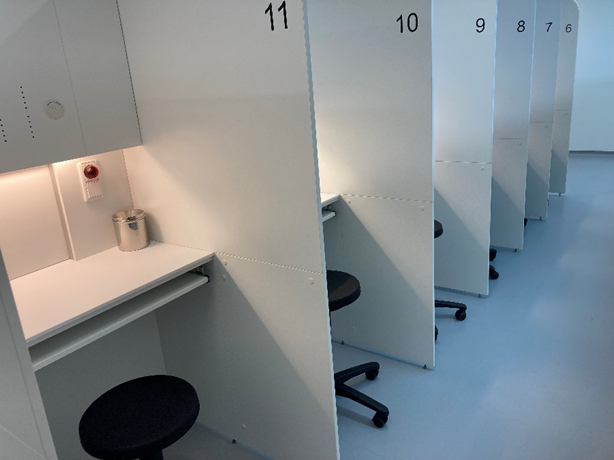What is the Fraunhofer Society working on?
The Fraunhofer Society is a German research organisation comprised of more than 60 institutes working in various industry-relevant fields of applied research. The Bioresources branch of the Fraunhofer Institute for Molecular Biology and Applied Ecology IME explores insects, bacterias, as well as fungi and, with the development and use of biotechnological methods, makes them usable for diverse applications.
Considering the growing world population, climate change, and the increasing competition from energy generators for renewable feedstocks, food production needs to become more resource-friendly. In this context, the Fraunhofer’s Food & Feed Improvement Agents deal with the development of novel foods and food additives. The institute aims to establish sustainable food systems by employing edible fungi and insects in order to contribute to a circular bioeconomy.
What are the roles and responsibilities of the Fraunhofer IME in the Smart Protein project?

Photo: Andreas Hammer, Fraunhofer IME
Within the Smart Protein Project, Fraunhofer IME develops liquid-state fermentation (LSF) processes to produce edible fungi-based food products. Fungi are equipped with an enormous toolbox to degrade complex substrates, such as food-industrial side-streams, that are normally discarded. At the same time, they have long been appreciated for their valuable nutritional profile and have been consumed as foods throughout the world for thousands of years. For LSF, fungi are grown in a liquid medium consisting of water and side-streams from the food industry, e.g. broken pasta residuals, wheat bran, or lentil fibres.
In this way, more than 100 different fungi were tested for their ability to digest various materials, with the fermented products evaluated in terms of their sensory properties and chemical compositions. For promising candidates, Fraunhofer IME scales the process from screening-culture volumes (< 50 ml) to a pre-industrial pilot scale (50–100 l), with Industry partners converting the procedure to larger volumes.
Fraunhofer IME’s expertise

Photo: Andreas Hammer, Fraunhofer IME
The facilities at IME-BR laboratories allow for all common wet-chemical and instrumental-analytical methods in order to evaluate food on the basis of its composition. Furthermore, a test room and a trained panel allow for extensive sensorial evaluations. For comprehensive fermentation experiments, the institute has access to an in-house culture collection of more than 20,000 fungal strains and provides bioreactor systems in multiple scales. These facilitate fermentation and other bioprocesses in a highly controlled environment. Detailed data can be used to optimise and scale up fermentation processes.
What is Fraunhofer IME’s work outside of the Smart Protein project?
The richness of the earth’s bioresources – the living organisms of our planet – inspires the team of researchers at Fraunhofer IME to rethink established knowledge and explore resources that have been neglected by research. Our scientists intensively study fungi and insects, as well as other organisms, in order to determine their potential for developing applications that improve our daily lives. The institute uses this research to explore innovative strategies for creating new products in medicine, pest control, industrial biotechnology, and the food industry.

Photo: Andreas Hammer, Fraunhofer IME
